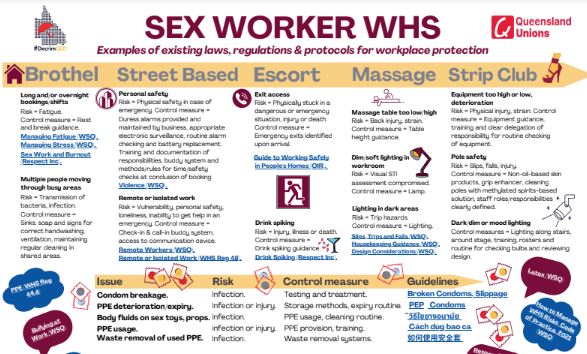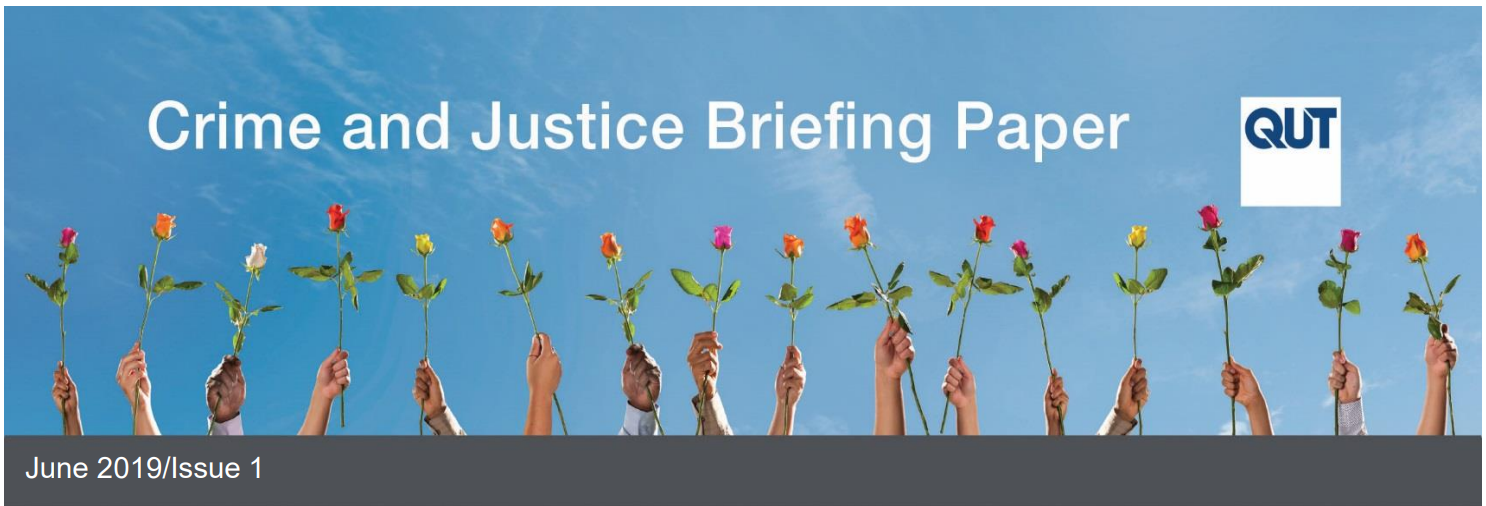2022 Survey of sex workers working in QLD & outcomes (synopsis below)
In 2022 DecrimQLD surveyed sex workers experiences of the laws, policing, entrapment, barriers to reporting crime, access to justice, workplaces and experiences of discrimination and the barriers to reporting those experiences. The survey outcomes informed a submission to the QLRC review into decriminalisation of sex work in Queensland, many other submissions and are summarised into five synopsis below as downloadable PDFs.
ANTI-DISCRIMINATION
“Sex work ers in Queensland experience excessively high levels of discrimination and vilification. The majority of cases are unreported. This synopsis summarises the outcome of consultations, workshops, online discussions and a recent survey of 204 sex workers who work in Queensland on experiences of discrimination and barriers to reporting. The outcomes demonstrate the failure of the current Anti-Discrimination Act to provide adequate protections for sex workers or an effective process to report these experiences.”
ers in Queensland experience excessively high levels of discrimination and vilification. The majority of cases are unreported. This synopsis summarises the outcome of consultations, workshops, online discussions and a recent survey of 204 sex workers who work in Queensland on experiences of discrimination and barriers to reporting. The outcomes demonstrate the failure of the current Anti-Discrimination Act to provide adequate protections for sex workers or an effective process to report these experiences.”
“I avoid discrimination as much as possible by anticipating it and concealing my sex work. That comes at a cost to ME. I avoid disclosing it, even where it would be an appropriate disclosure, because of the fear of discrimination, and the lack of redress I have if it occurs.”
ACCESS TO JUSTICE
![]() In June 2022 we released SYNOPSIS TWO from our research on barriers to sex workers accessing justice in Queensland. The survey participants reported systemic barriers created by both the current laws and police attitude and behaviour toward sex workers.
In June 2022 we released SYNOPSIS TWO from our research on barriers to sex workers accessing justice in Queensland. The survey participants reported systemic barriers created by both the current laws and police attitude and behaviour toward sex workers.
“When sex workers attempt to report crime it is often not taken seriously. This synopsis summarise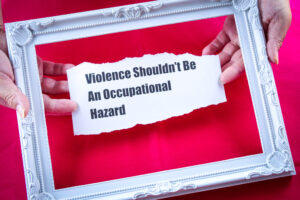 s the outcome of consultation and a recent survey of 204 sex workers who work in Queensland on experiences as victims of crime, barriers to reporting crime and solutions. The findings demonstrate the failure of the current laws and practices in Queensland to provide access to justice for sex workers.”
s the outcome of consultation and a recent survey of 204 sex workers who work in Queensland on experiences as victims of crime, barriers to reporting crime and solutions. The findings demonstrate the failure of the current laws and practices in Queensland to provide access to justice for sex workers.”
““When I was robbed and bashed…police turned up an hour later and spoke to me like I was a piece of shit and told me I should change jobs…”.”
PLANNING REGULATION UNDER DECRIMINALISATION
![]() In September 2022 we released SYNOPSIS THREE looking at planning regulations under decriminalisation in Queensland. Discriminatory planning approaches waste local government and sex industry business resources and undermine the implementation of decriminalisation.
In September 2022 we released SYNOPSIS THREE looking at planning regulations under decriminalisation in Queensland. Discriminatory planning approaches waste local government and sex industry business resources and undermine the implementation of decriminalisation.
Under current laws in Queensland sex work businesses are only considered in industrial zones and even so applications are often not approved. This synopsis summarise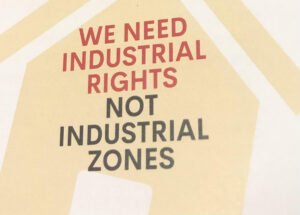 s the outcome of consultation and a recent survey of 204 sex workers the industries experience with planning approached in Queensland and in other jurisdictions. The synopsis offers practical solutions for planning solutions under decriminalisation for Queensland.
s the outcome of consultation and a recent survey of 204 sex workers the industries experience with planning approached in Queensland and in other jurisdictions. The synopsis offers practical solutions for planning solutions under decriminalisation for Queensland.
“Industrial zones are dark, away from people and public transit and other amenities, and often are located in places that are expensive to travel to if you don’t have a car…”
WORKPLACE HEALTH & SAFETY (WHS)
“Sex work ers in Queensland do not currently have WHS protections. Many basic safety strategies are criminalised and the workplace regulator does not currently cover the sex industry.
ers in Queensland do not currently have WHS protections. Many basic safety strategies are criminalised and the workplace regulator does not currently cover the sex industry.
This synopsis summarises the outcome of our recent survey of 204 sex workers who work in Queensland in relation to Workplace, Health and Safety.
“If I value my safety, it is impossible to comply with the current sex work laws.”
“It is just impossible to be safe AND follow the laws.”
LICENSING HAS FAILED
 In March 2023 we released SYNOPSIS FIVE looking at the impact of licensing in Queensland. Licensing has created a two-tiered industry where the majority of the sex industry and sex workers are locked out of the legal system, at risk of police prosecution and charges, and have few rights or protections at work. The licensing framework has resulted in only 20 licensed brothels, criminalising the majority of sex work businesses such as co-operatives, escort agencies, BDSM salons, and massage parlours.
In March 2023 we released SYNOPSIS FIVE looking at the impact of licensing in Queensland. Licensing has created a two-tiered industry where the majority of the sex industry and sex workers are locked out of the legal system, at risk of police prosecution and charges, and have few rights or protections at work. The licensing framework has resulted in only 20 licensed brothels, criminalising the majority of sex work businesses such as co-operatives, escort agencies, BDSM salons, and massage parlours.
This synopsis summarises the evidence of the impacts and failure of licensing in Queensland. It is informed by consultation and a recent survey of 204 sex workers who work in Queensland who recounted their experiences of the current licensing system and its effect on their workplaces and access to justice.
“Sex worker safety is constructed individually through a matrix of experiences, choices and privileges, and the current system does not even really allow us to *make* those choices. Choice enables me to accommodate life circumstances, like disability or chronic illness, care responsibilities, other employment responsibilities, etc. Choice also gives me a sense of self-determination, which is absolutely necessary for me to be well in sex work.”
The Case for Decriminalisation in Queensland
Peer Reviewed Article, June 2019, QUT Crime, Justice and Social Democracy Research Centre
“For the decades preceding the Fitzgerald Inquiry, sex work in Queensland was known as “the joke” – defined as illegal within the law, yet ubiquitous thanks to police corruption. In the 30 years since, Queensland has not yet managed to break out of this duplicitous mould. The laws and practice of sex work remain deeply at odds, causing problems for safety through costly and harmful policing. In this briefing paper, sex workers Elena Jeffreys and Janelle Fawkes, with academic Erin O’Brien explain the landscape, the evidence, and point towards the benefits of a decriminalised approach to sex work laws in Queensland.” Professor Melissa Bull, Director, Crime, Justice and Social Democracy Research Centre.
Submissions
-
Respect Inc & DecrimQLD Northern Territory submissions:
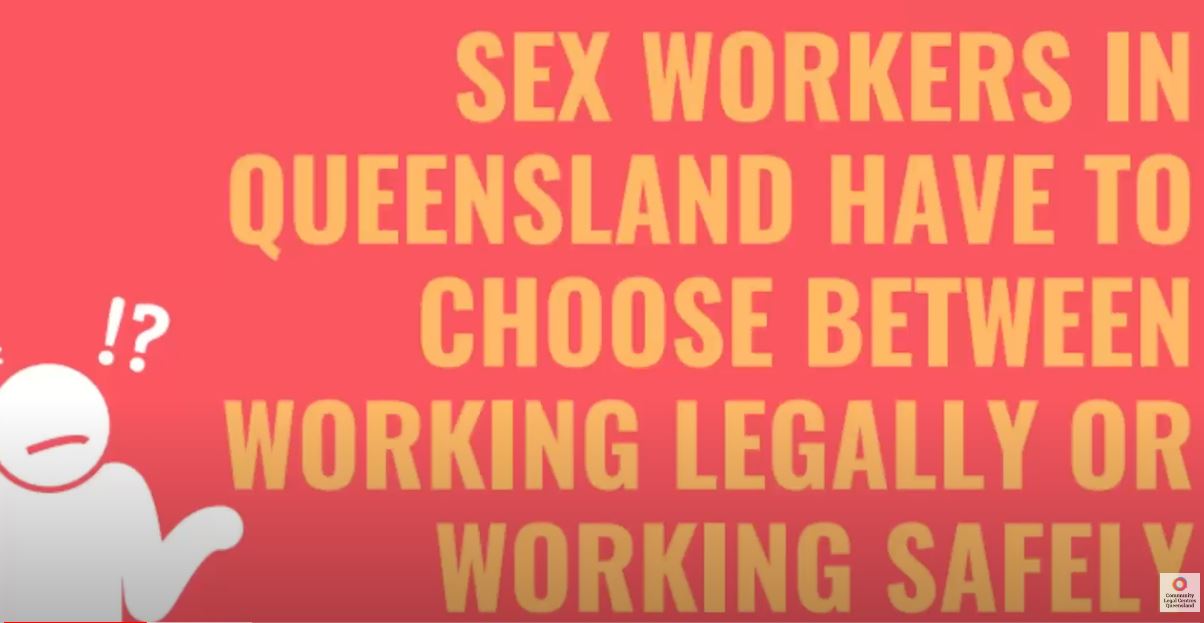
Webinar: CLCQ Shifting to decriminalisation”
Watch a 1 hour webinar hosted by CLCQ (Community Legal Centres Queensland) discussing the decriminalisation review, the consultation paper, the need to repeal the licensing laws in Queensland and how the current laws work. https://www.youtube.com/watch?v=cd-8iQEJkrs

Webinar: Sex worker safety should be sexy
Watch our 50 min webinar as sex workers explain the impact of the Queensland laws that criminalise sex worker safety strategies. https://youtu.be/kO1Xjk4RC0k
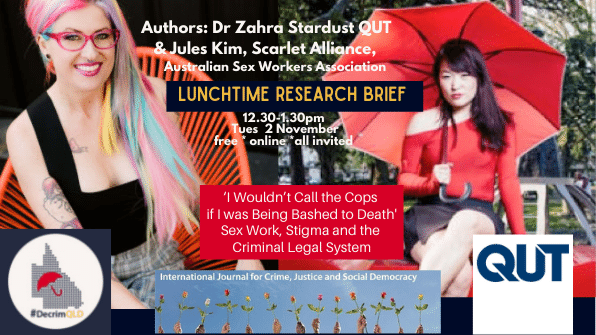
Webinar: Research brief, “I wouldn’t call the cops…”
Watch a 60 min research brief webinar presented by QUT School of Justice and #DecrimQLD as authors Dr Zahra Stardust and Jules Kim talk to Janelle Fawkes about the national stigma research and the recently published paper on Sex Work, Stigma and the Criminal Legal System and how it relates to the Queensland licensing laws and policing. https://www.youtube.com/watch?v=qHClnF-znc8
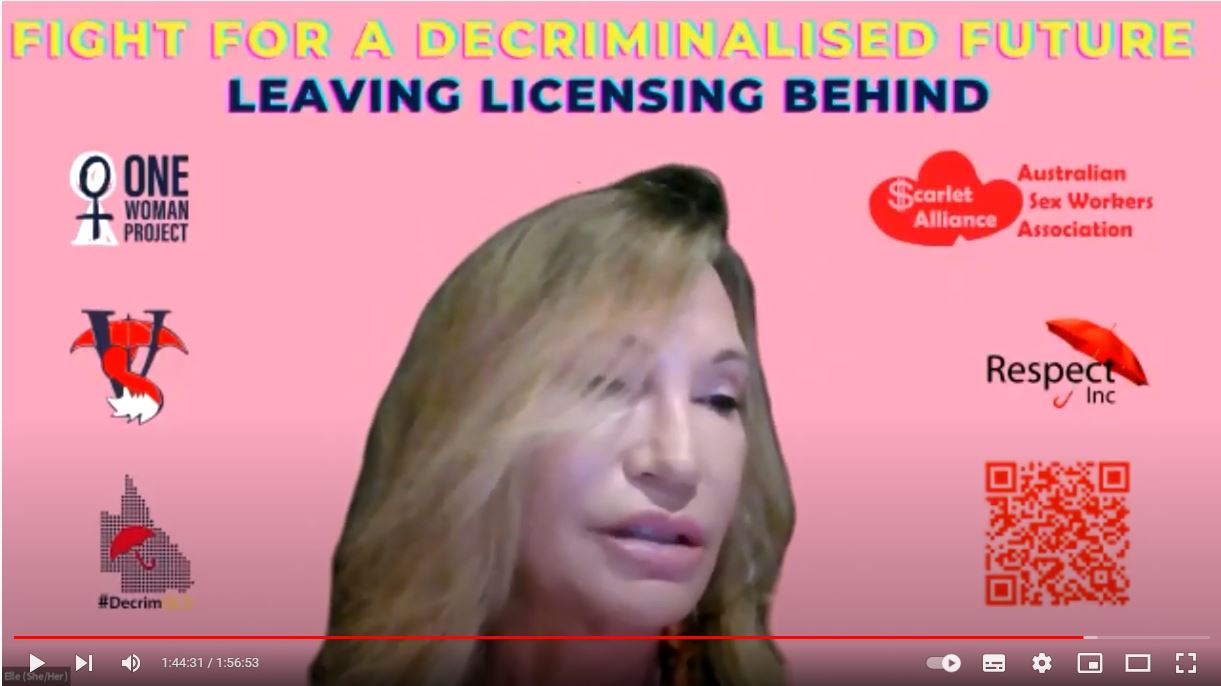
Webinar: Fight for a decriminalised future: leaving licensing behind
Watch a 2 hour webinar in collaboration with #DecrimQLD, Respect Inc, Vixen Collective and Scarlet Alliance, Australian Sex Workers Association, One Woman Project presented an International Woman’s Day event on sex worker rights. The presentations delved into the failures of licensing in Queensland and Victoria, and then explained the solution: full decriminalisation of sex work. https://www.youtube.com/watch?v=A7GhYqOjCl4
External Reports
There are countless research reports, inquiry reports, and reviews that identify the failure of licensing frameworks (the regulatory model in Queensland) and many that identify the valuable outcomes of decriminalisation as an effective regulatory model. We’ve compiled a sample here:
Report Conclusion – Licensing
“The public health evidence clearly shows the harms associated with all forms of sex work criminalisation, including regulatory systems, which effectively leave the most marginalised, and typically the majority of, sex workers outside of the law. These legislative models deprioritise sex workers’ safety, health, and rights and hinder access to due process of law. The evidence available suggests that decriminalisation can improve relationships between sex workers and the police, increasing ability to report incidences of violence and facilitate access to services [36,95,96]. Considering these findings within a human rights framework, they highlight the urgency of reforming policies and laws shown to increase health harms and act as barriers to the realisation of health, removing laws and enforcement against sex workers and clients, and building in health and safety protections [134]. It is clear that while legislative change is key, it is not enough on its own. Law reform needs to be accompanied by policies and political commitment to reducing structural inequalities, stigma, and exclusion—including introducing anti-discrimination and hate crime laws that protect sex workers and sexual, gender, racial, and ethnic minorities.”
The Lancet series on HIV and sex workers
“Launched at AIDS 2014, the series examined the enablers and barriers to preventing and treating HIV infection in high, middle and low income countries with varying rates of HIV among sex workers.
The findings were consistent across all settings. Researchers found that the ‘decriminalisation of sex work would have the greatest effect on the course of HIV epidemics across all settings, averting 33–46% of HIV infections in the next decade’.2
The evidence clearly suggests that in order for biomedical prevention approaches to be successful, removal of structural barriers – including law reform and addressing stigma – remain critical.
Without the support of enabling environments, through the full decriminalisation of sex work, barriers will remain far too substantial for biomedical prevention alone to succeed.
The Lancet makes the important distinction between decriminalisation of sex work and what is often referred to as the legalisation (or licensing) of sex work.3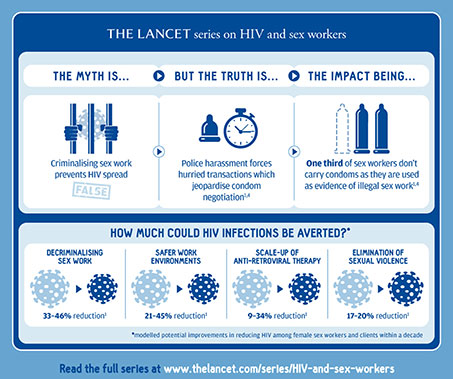
Figure 1: Excerpt from an infographic drawn from The Lancet series on HIV and sex workers.4
Decriminalisation of sex work applies to laws that criminalise consensual sex and related activities, including laws criminalising sex work; buying, soliciting, or procuring; brothel-keeping and management of sex work; and vagrancy, loitering, and public nuisance that are also used to target sex workers or clients.
In some countries it also applies to laws that criminalise same-sex consensual sex and laws that criminalise what is termed as ‘the impersonation of another sex’.5
The objective of legalisation is containment and control (and often surveillance) of sex work/ers, whereas the objective of decriminalisation is to uphold human rights and the occupational health and safety of sex workers.
Under decriminalisation criminal laws still apply to sex work, as they would to any other person or business. However, decriminalisation means that sex work is no longer seen as a crime but as work, and therefore, is subject to industrial regulatory mechanisms.”
Kirby Institute Report to the NSW Health Ministry
Recommendation 2: “Licensing of sex work (‘legalisation’) should not be regarded as a viable legislative response.
For over a century systems that require licensing of sex workers or brothels have consistently failed – most jurisdictions that once had licensing systems have abandoned them. As most sex workers remain unlicensed criminal codes remain in force, leaving the potential for police corruption. Licensing systems are expensive and difficult to administer, and they always generate an unlicensed underclass. That underclass is wary of and avoids surveillance systems and public health services: the current systems in Queensland and Victoria confirm this fact. Thus, licensing is a threat to public health.”
Kirby Institute Report to the NSW Health Ministry
“Recommendation 1 The NSW Government’s legislative reforms of 1979 and 1995 should be endorsed. These reforms that decriminalised adult sex work have improved human rights; removed police corruption; netted savings for the criminal justice system; and enhanced the surveillance, health promotion, and safety of the NSW sex industry. International authorities regard the NSW regulatory framework as best practice. Contrary to early concerns the NSW sex industry has not increased in size or visibility, and sex work remains stigmatised.”
Licensing or registration
“Some countries have put in place systems to regulate certain segments of the sex industry, which are allowed to operate in specific areas subject to monitoring or compliance with official requirements e.g. … licensing or registration systems in states and territories of Australia. …In these countries, the law requires businesses such as entertainment venues or massage parlours to be registered or licensed and to comply with conditions such as the requirement that employees test regularly for STIs. The major flaw of all of these approaches is that the majority of sex workers operate outside of the licensing or registration system. For this reason, these approaches have not proven effective in preventing HIV epidemics among sex workers.”
Conclusion (iii) Licensing and registration models have not been effective
“Licensing or registration of the sex industry has been of limited benefit in terms of public health and human rights outcomes for sex workers. Several jurisdictions have introduced licensing or registration of brothels, businesses where sex work occurs, or individual sex workers (e.g., Indonesia, Taiwan and several states and territories of Australia). Licensing or registration systems are usually accompanied by criminal penalties for sex industry businesses and individual sex workers who operate outside of the legal framework. Licensing or registration models may provide some health benefits to the small part of the sex industry that is regulated, but do not improve health outcomes for the broader population of sex workers. …Typically, in jurisdictions that have introduced licensing or registration systems the vast majority of sex workers operate outside of the system. This approach compounds the marginalization of most sex workers. Human rights violations may result from licensing models that require compulsory testing and registration of sex workers with government authorities.”
Conclusions (ii) Positive public health and human rights outcomes have been achieved in jurisdictions that have decriminalized sex work
“Evidence from the jurisdictions in the region that have decriminalized sex work (New Zealand and New South Wales) indicates that the approach of defining sex work as legitimate labour empowers sex workers, increases their access to HIV and sexual health services and is associated with very high condom use rates. Very low STI prevalence has been maintained among sex workers in New Zealand and New South Wales, and HIV transmission within the context of sex work is understood to be extremely low or nonexistent. In decriminalized contexts, the sex industry can be subject to the same general laws regarding workplace health and safety and anti-discrimination protections as other industries. The legal recognition of sex work as an occupation enables sex workers to claim benefits, to form or join unions and to access work-related banking, insurance, transport and pension schemes.”





